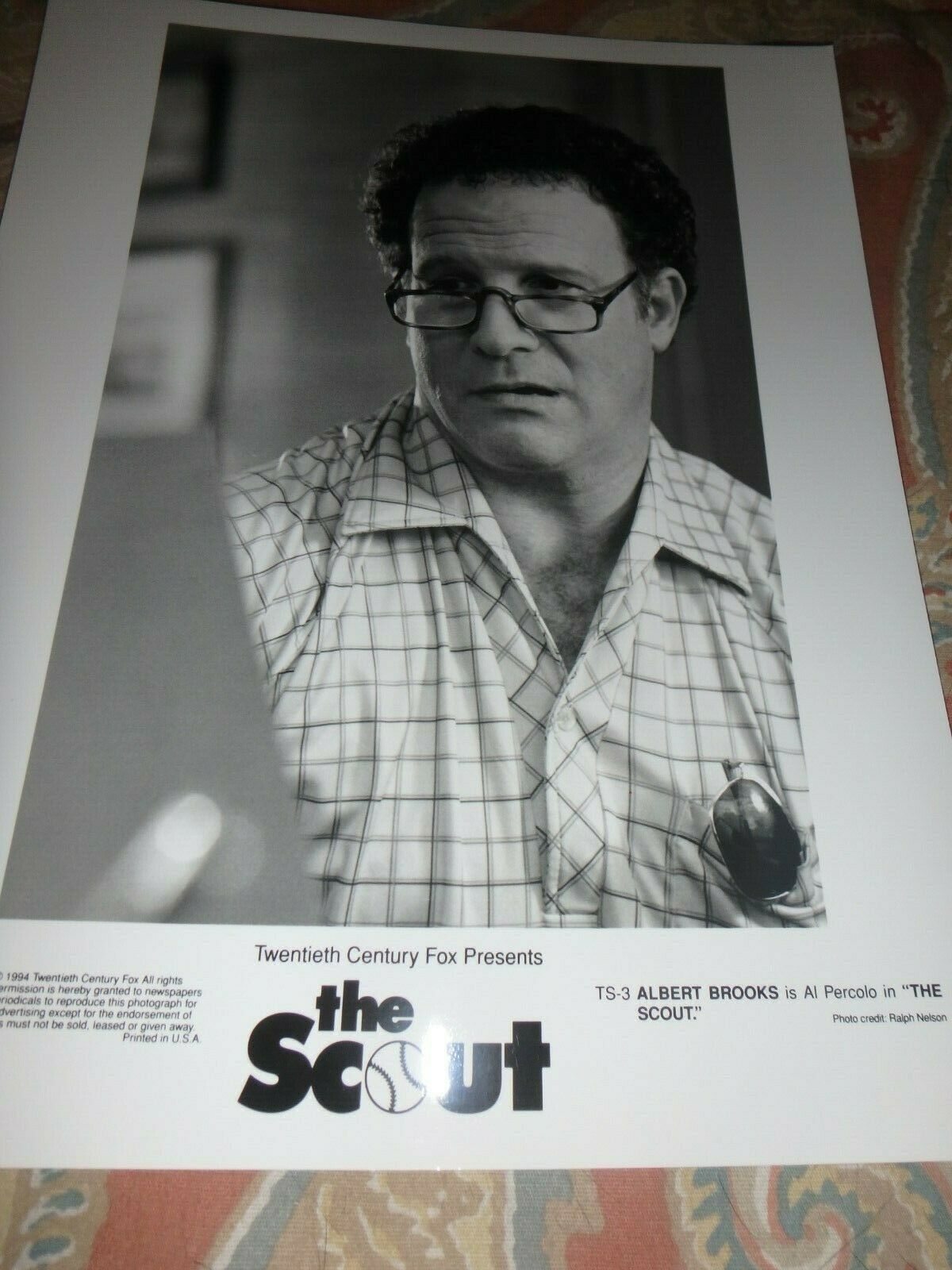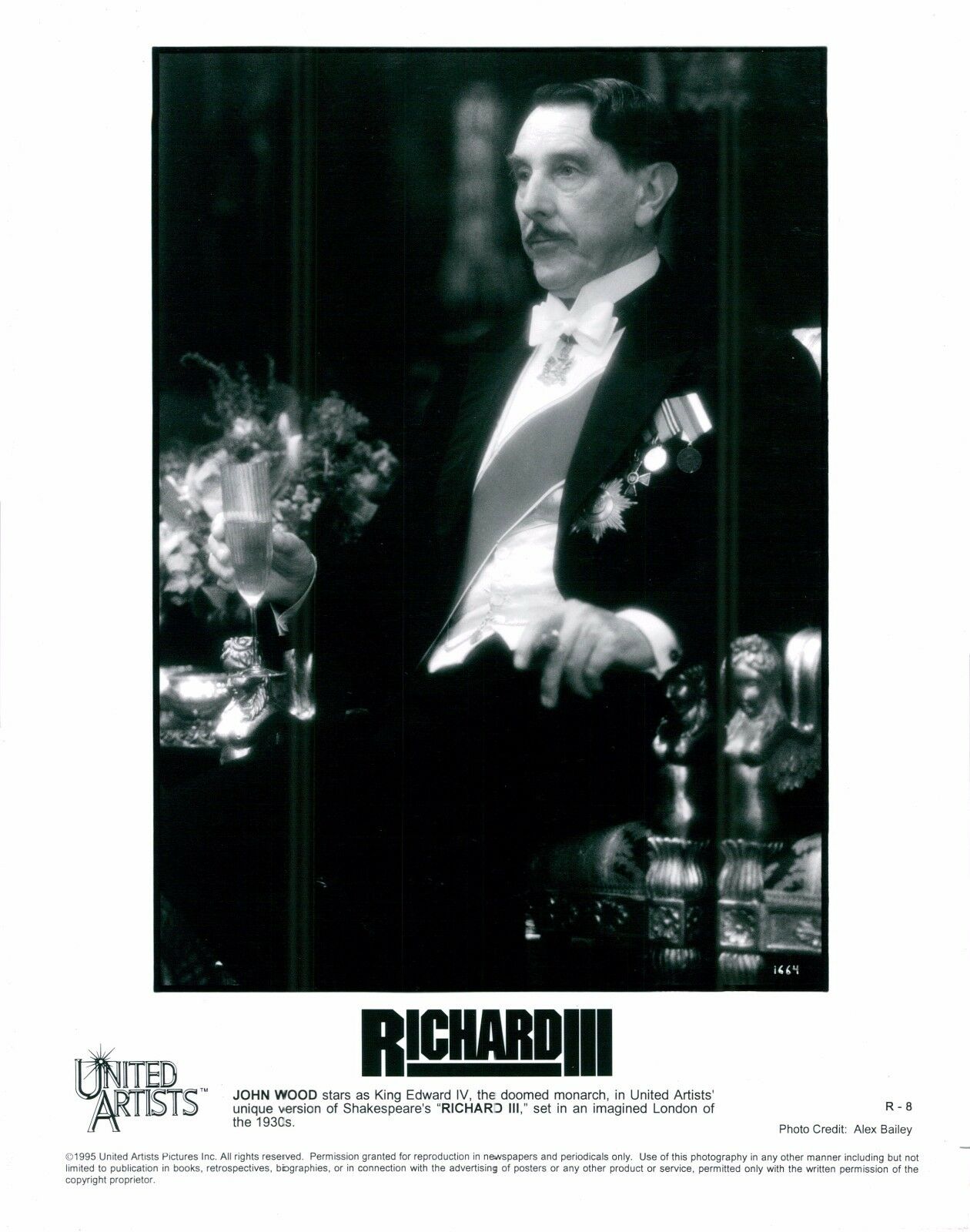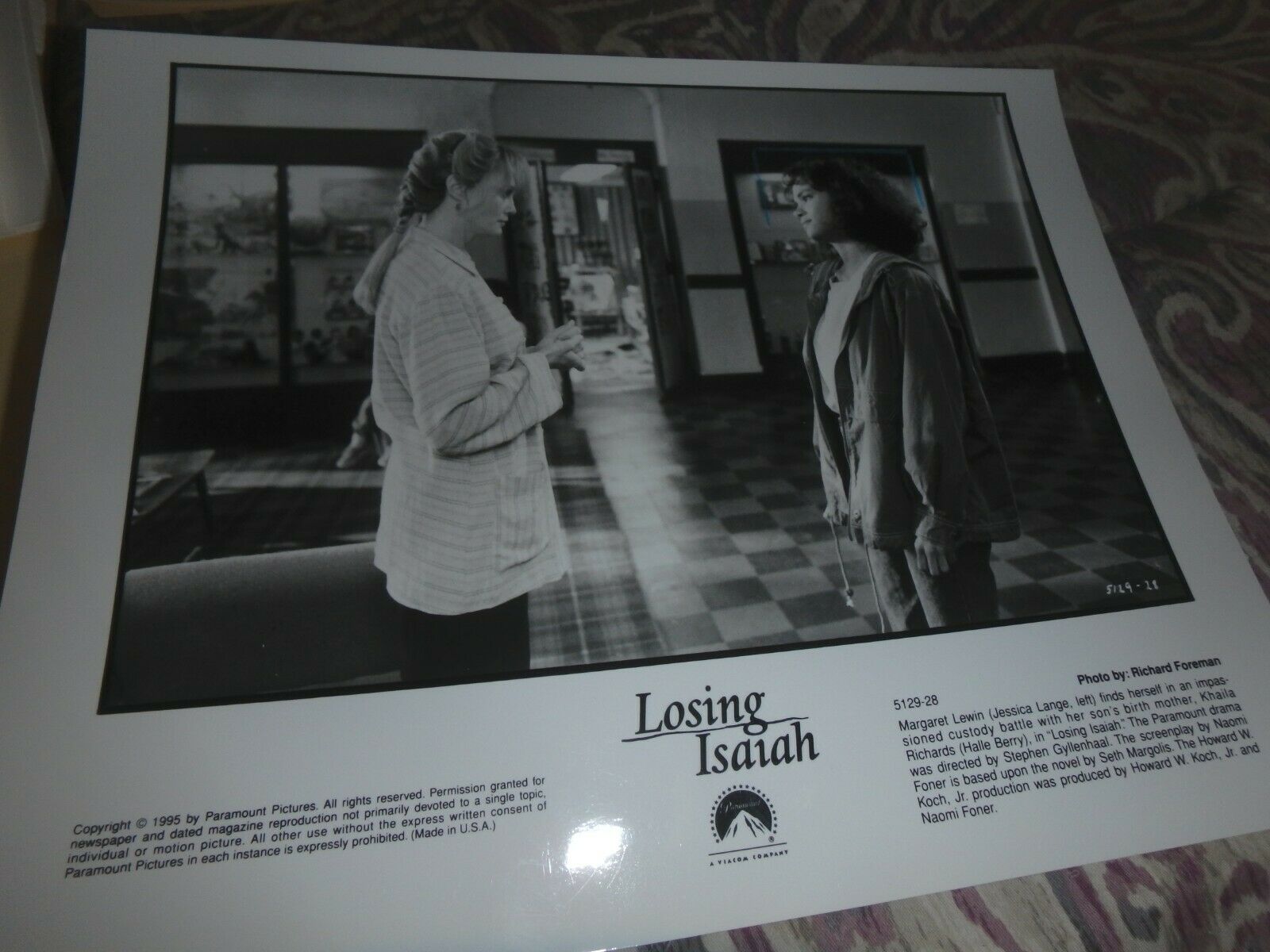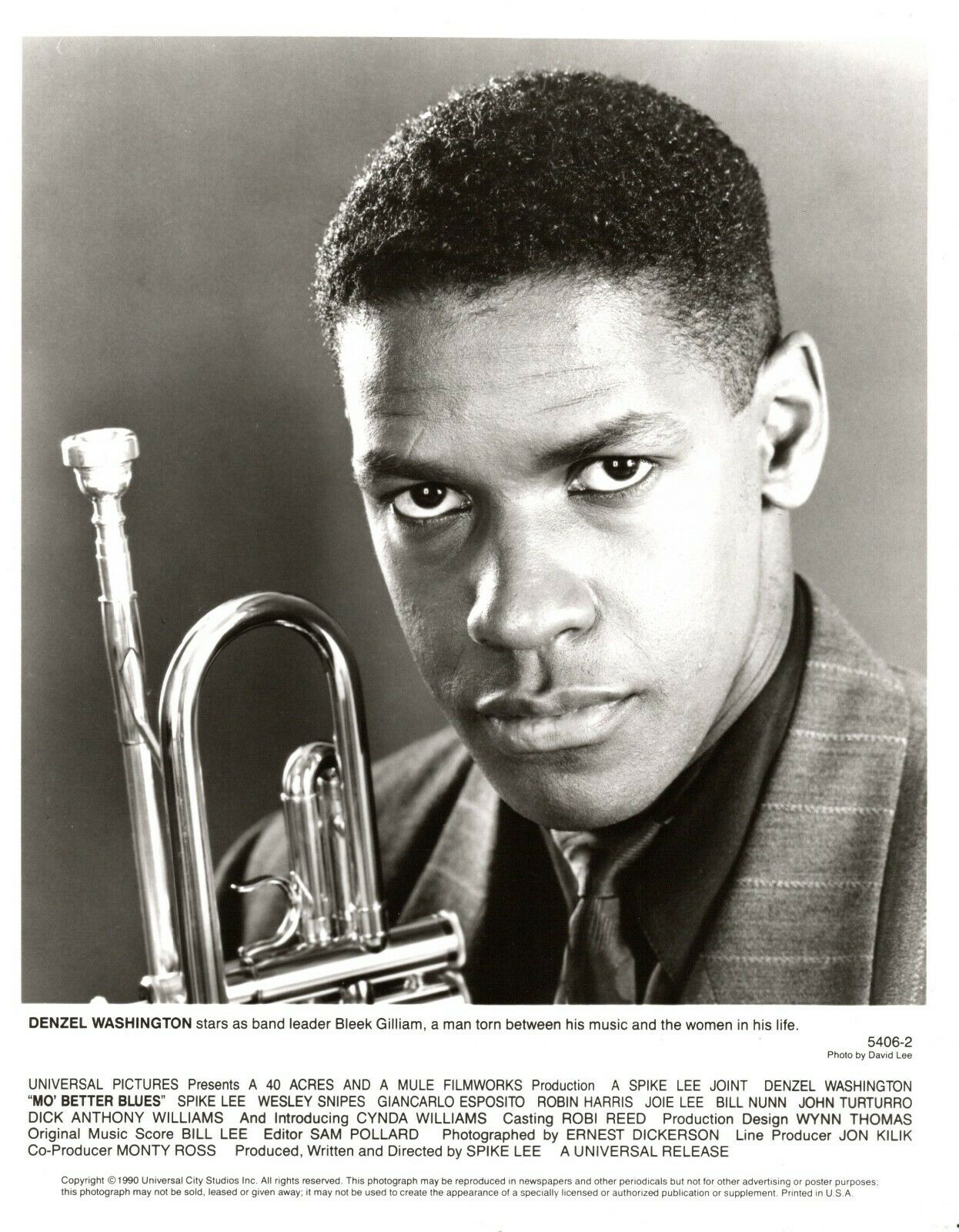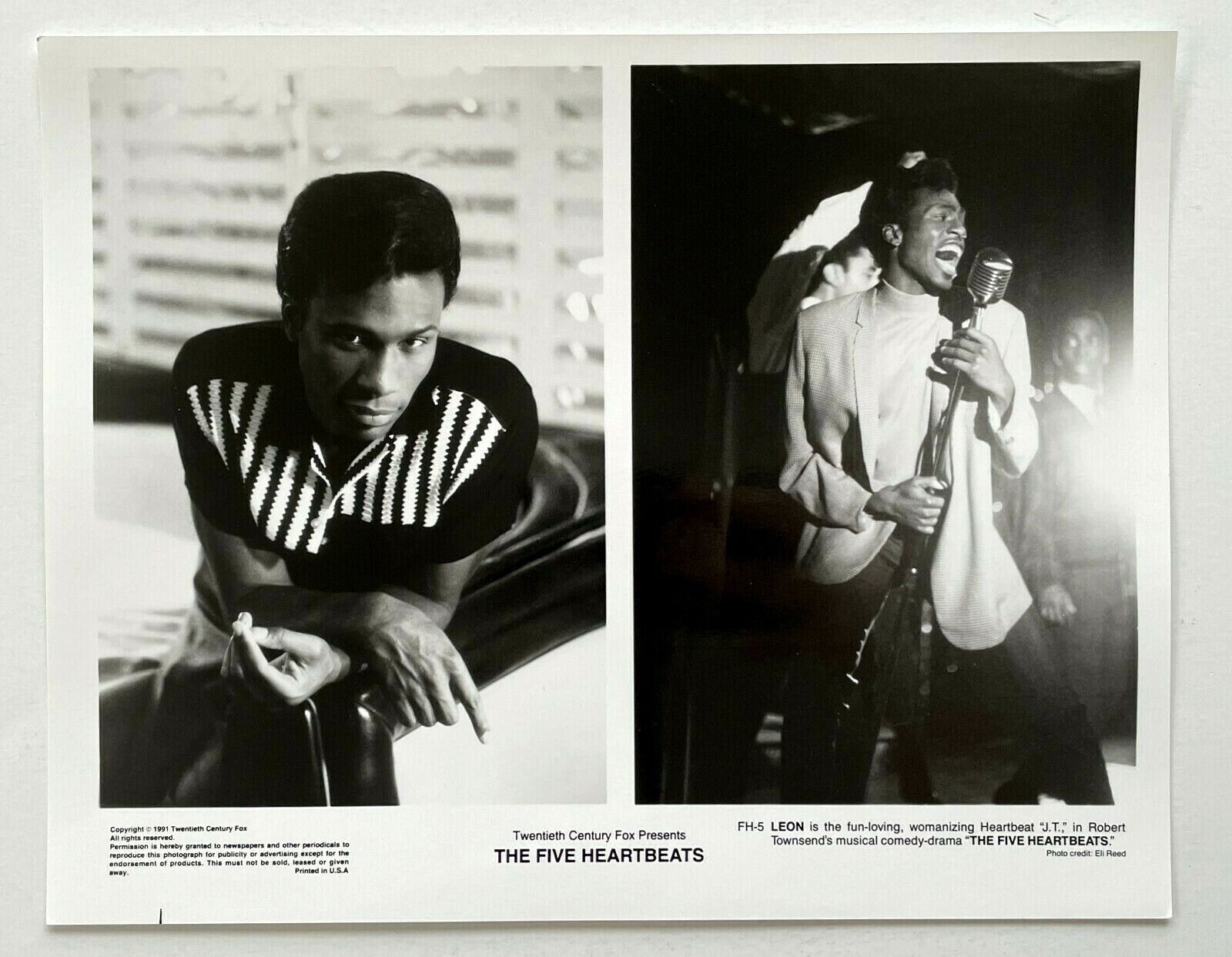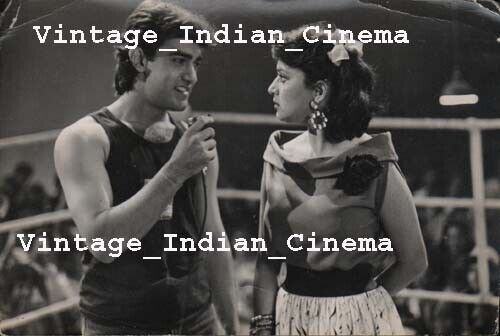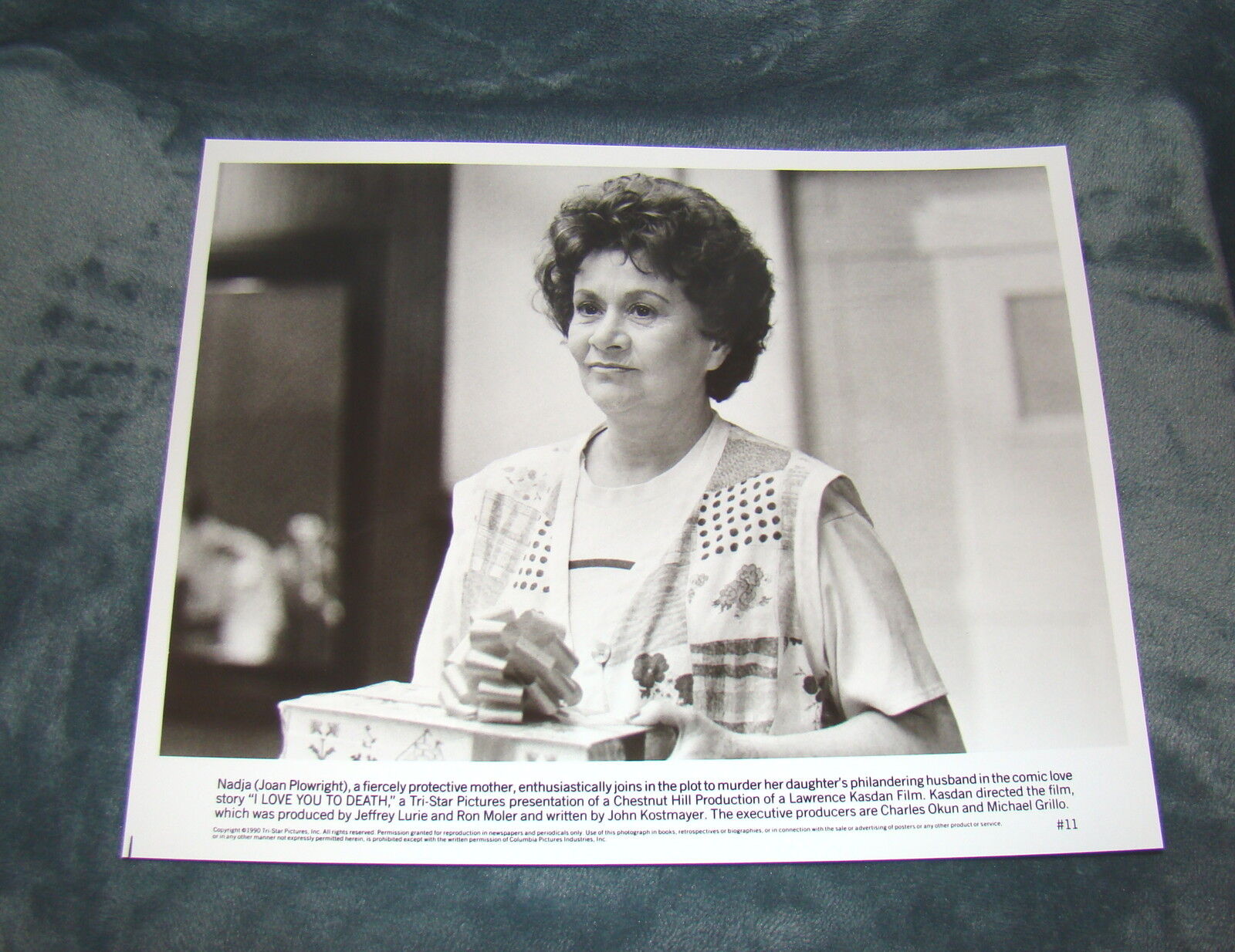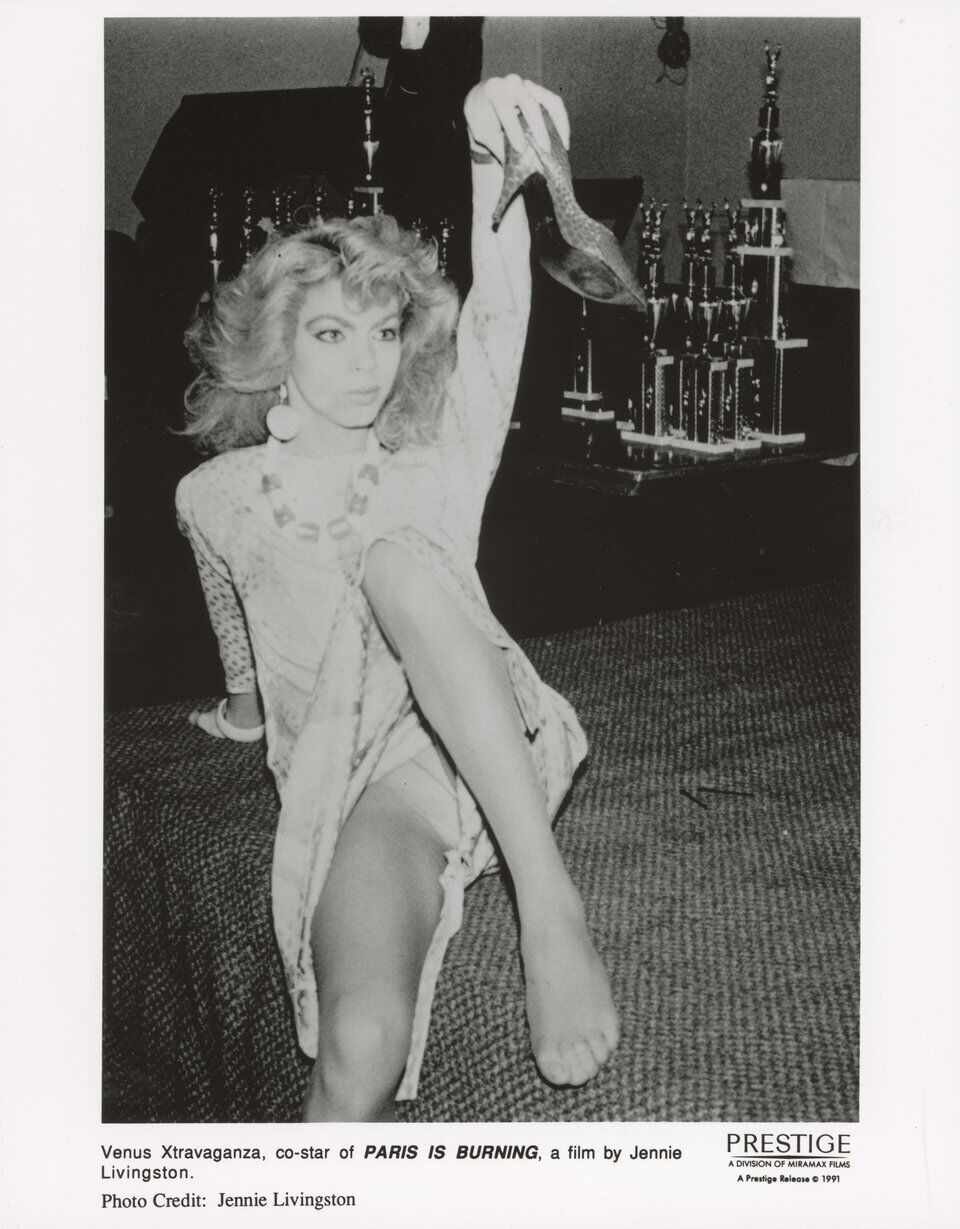-40%
Lot of 3, Mel Gibson, Maria Bello mint stills PAYBACK (1999) Lucy Liu, David Pay
$ 2.69
- Description
- Size Guide
Description
(They ALL look MUCH better than these pictures above. The circle with the words, “scanned for eBay, Larry41” does not appear on the actual photograph. I just placed them on this listing to protect this high quality image from being bootlegged.)Lot of 3, Mel Gibson, Maria Bello mint stills PAYBACK (1999) Lucy Liu, David Paymer, Gregg Henry – GET SIGNED!
This lot of approximately 8X10 photos will sell as a group. The first picture is just one of the group, please open and look at each still in this lot to measure the high value of all of them together. The circle with the words, “scanned for eBay, Larry41” does not appear on the actual photographs. I just placed them on this listing to protect these high quality images from being bootlegged. They would look great framed on display in your home theater or to add to your portfolio or scrapbook! Some dealers by my lots to break up and sell separately at classic film conventions at much higher prices than my low minimum. A worthy investment for gift giving too!
PLEASE BE PATIENT WHILE ALL PICTURES LOAD
After checking out this item please look at my other unique silent motion picture memorabilia and Hollywood film collectibles! SAVE BY SHIPPING SEVERAL WINS TOGETHER!
See a gallery of pictures of my other auctions
HERE!
These photographs are original photo chemical created pictures (vintage, from original Hollywood studio release) and not a copies or reproductions.
DESCRIPTION:
Porter (Mel Gibson) is pulled into a heist by his old friend, Val (Brian De Palma regular, Gregg Henry). As they're stealing 0,000 in laundered drug money from Chinese Triads, no one is going to call the police. Everything goes smoothly until Porter's wife, Lynn (Deborah Kara Unger), shoots Porter in the back. After Val had shown Lynn a photo of Porter in the arms of another girl (Maria Bello), the two planned the double-cross together to pay off Val's mob debts so he could return to "The Syndicate." They didn't plan well enough, though, because five months later Porter's back, a complete sociopath who wants his ,000. Brian Helgeland, the screenwriter for L.A. Confidential and Conspiracy Theory, makes his directing debut with this adaptation of the novel The Hunter by Donald E. Westlake writing under the pseudonym, Richard Stark. The same novel served as the basis for John Boorman's Point Blank starring Lee Marvin.
CONDITION:
These quality vintage and original release stills are all in near MINT condition (old yes, but no signs of wear or normal damage). I doubt there are better condition stills on this title anywhere! Finally, they are not digital or repros. (They came from the studio to the theater during the year of release and then went into storage where the collector I bought them from kept them for over 14 years!) They are worth each but since I have recently acquired two huge collections from life long movie buffs who collected for decades… I need to offer these choice items for sale on a first come, first service basis to the highest bidder.
SHIPPING:
Domestic shipping would be FIRST CLASS and well packed in plastic, with several layers of cardboard support/protection and delivery tracking. International shipping depends on the location, and the package would weigh close to three quarters of a pound with even more extra ridge packing.
PAYMENTS:
Please pay PayPal! All of my items are unconditionally guaranteed. E-mail me with any questions you may have. This is Larry41, wishing you great movie memories and good luck…
BACKGROUND:
After a turbulent and high-profile production that was rumored to have been reshot by star Mel Gibson, the final cut of Payback is certainly a letdown on many levels. Although he's played a wide range of characters, Mel Gibson is best known for portraying lovable loose cannons that strive for justice. In Payback, Gibson attempts to create a murderous anti-hero who steals, cheats, and cavorts with hookers and sadists. Tossing aside political correctness, he toys with his own screen image and assumes the role of a stone-cold villain and outlaw. The concept is compelling, but the movie fails to capitalize on this interesting premise. Payback is an empty, rarely engaging thriller that desperately tries to fuse classic film noir with '70s-era exploitation. Even though it was based on the brilliant 1967 film Point Blank, it doesn't even compare to the Lee Marvin and John Boorman thriller. Gibson's film seems sordid, empty, and vacuous, where Point Blank was stylish, mysterious, and suspenseful. Although moments in Payback are supposed to be comic, the audience is relentlessly inundated with brutal, meaningless violence. When Gibson's character isn't slaughtering his foes, he's getting shot, pummeled, or mangled with a mallet. While these moments should work on the basic noir level, the film clearly needs more humor to soften the mean-spirited violence. Lucy Liu (Ally McBeal) portrays an amusing dominatrix, but James Coburn steals the show in a brief cameo. First-time director Brian Helgeland, writer of L.A. Confidential, succeeds in creating a gritty, retro world, but his direction is sloppy and the character relationships are contrived. A decent debut effort, it simply can't compare to John Boorman's exhilarating masterpiece.
Despite a thick Australian accent in some of his earlier films, actor Mel Gibson was born in Peeksill, NY, to Irish Catholic parents on January 3rd, 1956. One of eleven children, Gibson didn't set foot in Australia until 1968, and only developed an Aussie accent after his classmates teased him for his American tongue. Mel Gibson's looks have certainly helped him develop a largely female following similar to the equally rugged Harrison Ford, but since his 1976 screen debut in Summer City, Gibson has been recognized as a critical as well as physiological success. Though he had, at one point, set his sights on journalism, Gibson caught the acting bug by the time he had reached college age, and studied at the National Institute of Dramatic Art in Sydney, Australia, despite what he describes as a crippling ordeal with stage fright. Luckily, this was something he overcame relatively quickly -- Gibson was still a student when he filmed Summer City and it didn't take long before he had found work playing supporting roles for the South Australia Theatre Company after his graduation. By 1979, Gibson had already demonstrated a unique versatility. In the drama Tim, a then 22-year-old Gibson played the role of a mildly retarded handy man well enough to win him a Sammy award -- one of the Australian entertainment industry's highest accolades -- while his leather clad portrayal of a post-apocalyptic cop in Mad Max helped the young actor gain popularity with a very different type of audience. Gibson wouldn't become internationally famous, however, until after his performance in Mad Max 2 (1981), one of the few sequels to have proved superior to its predecessor. In 1983, Gibson collaborated with director Peter Weir for the second time (though it was largely overlooked during the success of Mad Max 2, Gibson starred in Weir's powerful WWI drama Gallipoli in 1981) for The Year of Living Dangerously, in which he played a callous reporter responsible for covering a bloody Indonesian coup. Shortly afterwards, Gibson made his Hollywood debut in The Bounty with Oscar-winner Anthony Hopkins, and starred opposite Sissy Spacek in The River during the same year. He would also star in Mad Max Beyond Thunderdome (1985) alongside singer Tina Turner. After the third installment to the Mad Max franchise, Gibson took a two-year break, only to reappear opposite Danny Glover in director Richard Donner's smash hit Lethal Weapon. The role featured Gibson as Martin Riggs, a volatile police officer reeling from the death of his wife, and cemented a spot as one of Hollywood's premier action stars. Rather than letting himself become typecast, however, Gibson would surprise critics and audiences alike when he accepted the title role in Franco Zeffirelli's Hamlet (1990). Though his performance earned mixed reviews, he was applauded for taking on such a famously tragic script. In the early '90s, Gibson founded ICON Productions, and through it made his directorial debut with 1993's The Man Without a Face. The film, which also starred Gibson as a horrifically burned teacher harboring a secret, achieved only middling box-office success, though it was considered a well-wrought effort for a first-time director. Gibson would fare much better in 1994 when he rejoined Richard Donner in the movie adaptation of Maverick; however, it would be another year before Gibson's penchant for acting, directing, and producing was given its due. In 1995, Gibson swept the Oscars with Braveheart, his epic account of 13th century Scottish leader William Wallace's lifelong struggle to forge an independent nation. Later that year, he lent his vocal talents -- surprising many with his ability to carry a tune -- for the part of John Smith in Disney's animated feature Pocahontas. Through the '90s, Gibson's popularity and reputation continued to grow, thanks to such films as Ransom (1996) and Conspiracy Theory (1997). In 1998, Gibson further increased this popularity with the success of two films, Lethal Weapon 4 and Payback. More success followed in 2000 due to the actor's lead role as an animated rooster in Nick Park and Peter Lord's hugely acclaimed Chicken Run, and to his work as the titular hero of Roland Emmerich's blockbuster period epic The Patriot (2000). After taking up arms in the battlefield of a more modern era in the Vietman drama We Were Soldiers in 2002, Gibson would step in front of the cameras once more for Sixth Sense director M. Night Shyamalan's dramatic sci-fi thriller Signs (also 2002). The film starred Gibson as a grieving patriarch whose rural existence was even further disturbed by the discovery of several crop circles on his property. Gibson would return to more familiar territory in Randall Wallace's We Were Soldiers -- a 2002 war drama which found Gibson in the role of Lt. Col. Hal Moore, commander of the First Battalion, Seventh Cavalry -- the same regiment so fatefully led by George Armstrong Custer. In 2003, Gibson starred alongside Robert Downey Jr. and Robin Wright-Penn in a remake of The Singing Detective. The year 2004 saw Gibson return to the director's chair for The Passion of The Christ. Funded by 25 million of Gibson's own dollars, the religious drama generated controversy amid cries of anti-Semitism. Despite the debates surrounding the film -- and the fact that all of the dialogue was spoken in Latin and Aramaic -- it nearly recouped its budget in the first day of release. The actor stepped behind the camera again in 2006 with the Mayan tale Apocalypto and was preparing to product a TV movie about the Holocaust, but by this time, public attention was not pointed at Gibson's career choices.
Born in Pennsylvania c. 1967, Maria Bello attended Villanova University as a political science major, but acting ability - evident from an early drama class - altered her career plans. Following graduation, Bello honed her acting skills in a number of New York theater productions before she broke through to the public as one of the leads in the short-lived TV spy comedy Mr. and Mrs. Smith (1996). Bello gained broader primetime exposure as Dr. Anna Del Amico on NBC's blockbuster ER during the 1997 season and segued into films with her performance as recovering junkie Ben Stiller's confidante in the film-a-clef Permanent Midnight (1998), adapted from Jerry Stahl's harrowing book. Bello scored her first pop hit as Mel Gibson's beautiful cohort in the harsh crime drama Payback (1999). Poised to potentially become one of the select group of actors who transition smoothly from television to film, Bello co-starred as one of the bottle-tossing, bar-stomping babes in charge of the titular drinking establishment in the Bruckheimer-produced hellraiser Coyote Ugly (2000). When Coyote Ugly failed to live up to box office hopes, Bello starred as Suzi Loomis in Bruce Paltrow's Duets, and as Ruth Harkness in the IMAX feature China: The Panda Adventure (2001), based on her real-life experiences with the eponymous creatures. Bello scored a bona fide critical, if not financial, hit with Paul Schrader's biopic about slain Hogan's Heroes star Bob Crane, Auto Focus (2002). As Crane's co-star and second wife Patricia, Bello holds her own opposite Greg Kinnear's bravura performance as the nymphomaniacal Crane, evoking the complex emotions of a spouse who accepts yet ultimately cannot contend with her husband's desires. A year after Auto Focus, Bello would score even bigger with the critics with a starring role alongside William H. Macy in the gritty Vegas romance The Cooler. As the cocktail waitress who falls for Macy's sadsack ne'er-do-well, Bello brought a sense of extreme realism to her character. The film netted her a Best Supporting Actress nomination from the Screen Actors Guild and a runner-up prize from The National Society of Film Critics. In early 2004, Bello appeared as Johnny Depp's estranged wife in the Stephen King adaptation The Secret Window, and in John Sayles' well-received political thriller Silver City. Though subsequent appearances in the fairly forgettable Assault on Precinct 13, The Dark, and The Sisters followed in 2005, Bello's Golden Globe-nommed performance as an unassuming housewife who married into mystery in A History of Violence, coupled with her prominent performance as a determined alcohol lobbyist in the critically-acclaimed Thank You for Smoking, helped to get her back in the good graces of critics and end the year on a decidedly high note. When 2006 arrived, Bello joined Nicolas Cage, Michael Pena, and Maggie Gyllenhall in World Trade Center, Oliver Stone's docudrama/survival picture that recounted the experiences of two Port Authority firefighters trapped beneath the rubble of the destroyed buildings. Bello joins the cast of the same year's Flicka, adapted from the seminal children's novel by Mary O'Hara (and incarnated decades prior as the movie and TV series My Friend Flicka) , alongside Alison Lohman and country singer Tim McGraw. Bello had a lead part in Alan Ball's feature film directorial debut Towelhead in 2007, and tackled the indie horror film Downloading Nancy the next year. In 2010 she scored a small part in the Adam Sandler comedy Grown Ups as well as major parts in a couple of dramas - The Company Men and Beautiful Boy. Active in social causes as well, Maria Bello co-founded the Harlem not-for-profit arts and education program, Dream Yard Drama Project for Kids.
A character actor with a reputation for playing heavies and high rollers, Gregg Henry got his start on screen in the late '70s. He landed small roles in projects like the TV movies Hot Rod and Dummy, before adding some big-screen parts to his résumé. Perhaps Henry's most memorable movie role of his early career was the sly Sam Bouchard in the de Palma thriller Body Double. He would continue to find a home with TV, however, making notable appearances on shows like Magnum, P.I., and Jake and the Fatman, and playing recurring roles over the coming years on Matlock, L.A. Law, Murder, She Wrote, Gilmore Girls, The Riches, and 24. Henry would also continue to take on occasional movie roles, including in 2006's The Black Dahlia and 2011's Super.
A former theatre and psychology major at the University of Michigan, actor David Paymer's first Broadway success was in the long-running musical Grease. He tentatively launched his film career in the tiny but telling role of a cabbie in 1979's The In-Laws, then returned to working "live" as a performer and writer for The Comedy Store. A character actor even in his early twenties, Paymer displayed his versatility in a wealth of TV supporting roles on such weeklies as Cagney and Lacey, Diff'rent Strokes, The Commish and Downtown. Billy Crystal was so impressed with Paymer's work as ice-cream entrepreneur Ira Shalowitz in City Slickers (1991) that Crystal assigned him the plum role of Stan Yankelman, long-suffering brother and business manager of Berle-like comedian Buddy Young Jr., in Mister Saturday Night (1992). Convincingly playing an age range from 20 to 75, Paymer was honored with an Oscar nomination. Dividing his time between working in films and teaching classes at the Film Actor's Workshop, David Paymer has recently been seen as the angelic Hal in Heart and Souls (1993) and real-life TV producer Dan Enright in Robert Redford's Quiz Show (1994). In the decades to come, Paymer would remain an ever-present force on screen, appearing in films like In Good Company, Drag Me to Hell, Bad Teacher, and Redbelt, as well as TV shows like Line of Fire and The Good Wife.
Best known to television audiences as Ling Woo, the raging force of political incorrectness on Ally McBeal, Lucy Alexis Liu has managed to cross over to the big screen in such features as Payback and Play It to the Bone. Born to Chinese parents in Jackson Heights, NY, on December 2, 1968, Liu grew up speaking both English and Mandarin. After graduating from Manhattan's Stuyvesant High School, she earned a degree in Asian languages and cultures from the University of Michigan, where she also studied acting, dance, and voice. Liu's first professional job was playing a waitress on Beverly Hills 90210, something that led to more substantial work on various TV shows, including a regular part on the TV series Pearl. Liu's biggest breakthrough came in 1998, when she was cast as Ling Woo on Ally McBeal. She had originally auditioned for the role of Nelle Porter, which ultimately went to Australian actress Portia DeRossi. David E. Kelley, the show's producer, was so impressed with Liu's audition, however, that he created the role of Ling Woo specifically for her. The character was initially supposed to be included on only a few episodes but proved so popular with the show's audience that Liu was made into a regular cast member. Unsurprisingly, the actress' increased exposure led to greater opportunities on the screen and after playing supporting roles in such films as Payback and Molly (both 1999), she moved on to more substantial work in Play It to the Bone and the Jackie Chan martial-arts period comedy Shanghai Noon, which cast her as a princess who has been kidnapped from her emperor father. In 2000, she also was cast in perhaps her most high-profile role to date, when she was chosen alongside Drew Barrymore and Cameron Diaz as one of the titular crime fighters in Charlie's Angels: The Movie. With the exception of a small role as an inmate in the Oscar-winning film Chicago, 2002 brought little recognition for Liu -- Cypher, Ballistic: Ecks vs. Sever, and Party Monster with former Home Alone star Macaulay Culkin went virtually unseen by the general public. 2003's Charlie's Angels: Full Throttle placed Liu firmly back inside the spotlight, though she was somewhat overshadowed by the toothy blonde glint that is Cameron Diaz. Luckily for Liu, she was given the chance to shine quite independently when Quentin Tarantino cast her as the deadly O-Ren Ishii, AKA Cottonmouth, in Kill Bill Vol. 1 (2003). Unfortunately roles in subsequent action films like Domino and Lucky Number Slevin failed to capitolize on that momentary career momentum, though a voice role as Viper in Kung Fu Panda (as well as the sequel and subsequent television series) found her continuing to kick butt in virtual form. Meanwhile, on the small screen, Liu donned a badge for a recurring role on the TNT cop series Southland.



